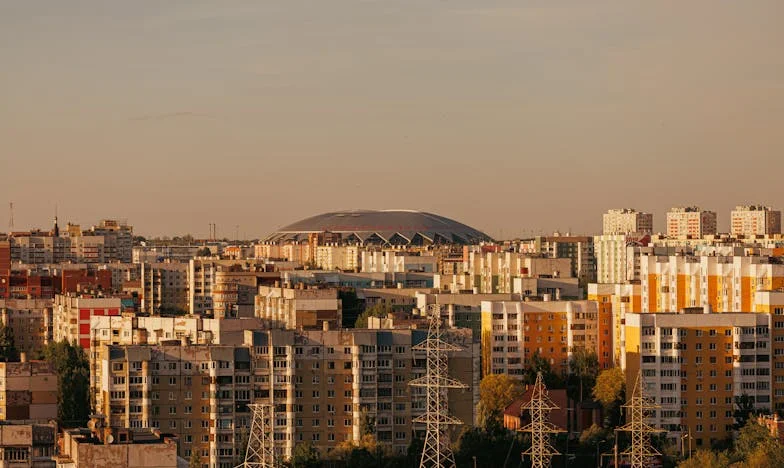Defeated by Freedom: The Story of One Little Bottle
“Put the goddamn bottle down, Jack. That’s not who you are.”
Alex’s words cut through the heavy silence in my apartment, slicing deeper than the sharp scent of whiskey that hung in the air. My hand trembled, still clutching the bottle, knuckles white. I looked at him, my oldest friend, and saw the same desperation in his eyes that I felt gnawing at my insides.
We’d been through hell together, Alex and I. Two men, both divorced twice by the time we hit forty. That kind of failure doesn’t just sting—it brands you. Our wives had left for different reasons, but in the end, it always came back to the same thing: we needed space, they needed connection. Ironic, isn’t it? When they left, all we had was space. Endless, echoing, suffocating space.
After my second divorce, my world shrank to a one-bedroom apartment in downtown Milwaukee. I traded wedding rings for running shoes, late-night arguments for early morning bike rides. Alex and I would meet at the lakefront before dawn, pounding out our loneliness on the pavement, wordless, bonded by sweat and sorrow. We told ourselves we were free—free from nagging, from compromise, from the weight of someone else’s needs.
But freedom, it turned out, was just another prison. I’d stare at the ceiling at night, listening to the city’s distant hum, and wonder if this was it. If this emptiness was the price of never being trapped again.
The bottle was a gift. Ironic, again—my brother, Mark, brought it to my birthday dinner, a fancy bourbon in a squat glass flask. “You deserve to celebrate,” he said, clapping me on the back. But celebrations felt hollow. The first sip burned in my throat, but it warmed me, dulled the ache. One sip became two, then three. I told myself it was just to take the edge off—a nightcap, nothing more.
But the bottle became a companion, a silent answer to the questions I didn’t want to ask. Was I really happy alone? Was I too broken to try again? Was freedom just a word we clung to because we were too scared to admit we wanted more?
Alex noticed before anyone else. He’d come over after work, bringing takeout and stories about his latest failed Tinder date. He’d laugh, but his eyes would flick to the side table, to the bottle I tried to hide. One night, I snapped at him—told him to mind his own business, that I was fine.
“Are you?” he shot back. “Because I’m not. And you’re not fooling anyone, Jack. Not with that bottle.”
We stopped running together. He stopped texting. The silence grew, heavy and shameful. My mother called, worried. My teenage daughter, Kayla, started canceling our weekend visits. “I just don’t feel like it, Dad,” she’d say, her voice flat. I knew what she meant. She didn’t want to see me like this.
One night, drunk and angry, I called my ex-wife, Melissa. I left a message I barely remembered, something about second chances, about how we’d both messed up. She never called back. The next morning, I stood in the shower, letting the water scald my skin, and wondered how it had come to this.
I tried to stop. I did. I poured the bourbon down the drain, swearing it was the last time. But the ache didn’t go away. The freedom I’d fought so hard for felt like a cage. I watched the world go by from my window, saw couples walking dogs, families laughing in the park, and felt like a ghost in my own life.
Then, one evening, Alex showed up at my door. No warning, just a knock, his face tight with worry. He didn’t wait for an invitation—just walked in, found the bottle on my kitchen counter, and held it up.
“This is bullshit,” he said, voice shaking. “We said we’d never end up like this.”
I wanted to yell, to tell him to leave me alone. But the words got stuck in my throat. Instead, I just stared at the bottle, at the way his hand gripped it—like it might shatter at any moment.
“Jack,” he said, softer now. “What are we so afraid of? Being alone? Or being hurt again?”
I sat down hard on the couch, put my head in my hands. I felt like a child, lost and scared, desperate for someone to tell me what to do.
“I don’t know,” I whispered. “I just… I can’t go back. Not to the way things were.”
He set the bottle down, sat beside me. “Neither can I. But this—this isn’t living. It’s hiding.”
We sat there in silence, two men defeated by our own freedom, terrified of what waited on the other side of the loneliness. When he left that night, he took the bottle with him. I watched him go, feeling something shift inside me—fear, maybe, or hope.
The days that followed were the hardest. I forced myself out of bed, back into my running shoes. I called Kayla, apologized for everything. I called my mom, told her the truth. I even called Alex, thanked him for not giving up on me.
It’s a slow climb, this business of starting over. Some days, I still crave the numbness that bottle promised. But I’m learning that freedom isn’t about being alone—it’s about having the courage to let people in, to risk being hurt, to believe that life can be more than just surviving.
I still don’t have all the answers. Maybe I never will. But I look at that empty space on my kitchen counter—the place where that little bottle used to sit—and I wonder: When did freedom start to feel so heavy? What does it really mean to be free?
